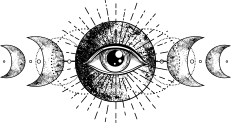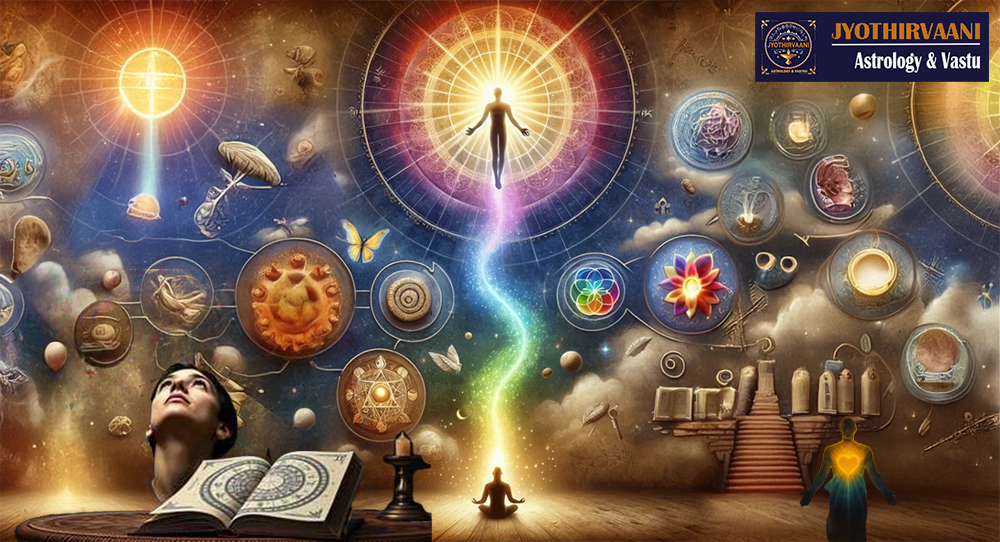Secrets of Chart Interpretation:
From Lagna to Navamsa
In the sacred tradition of Sanatana Dharma, the human birth is not a random occurrence but a meticulously orchestrated karmic unfolding. The Jyotisha Shastra, one of the six Vedangas, serves as the divine eye of the Vedas, revealing the subtle interplay of karma, dharma, and cosmic rhythm. Among its many tools, the interpretation of a Janma Kundali—from Lagna (Ascendant) to Navamsa (D9 chart)—is a profound spiritual exercise, not merely a predictive one.
Lagna: The Dawn of Individual Dharma
The Lagna represents the moment the soul takes its first breath in this incarnation. It is the Kshetra, the field of action, where the Jivatma begins its journey. In the Krishna Yajurveda, the concept of Kshetra-Kshetrajna is beautifully elaborated:
Kshetrajnam chaapi maam viddhi sarvaksetreshu bhaarata
Know Me as the Knower of the field in all fields, O Bharata.
— Bhagavad Gita 13.3
Here, the Lagna becomes the field, and the Atman is the knower. The planetary placements in the Lagna chart reveal the Svadharma—the unique path of righteousness and duty for the native.
Rashi Chart: The Karma Blueprint
The Rashi chart is the Sthoola Sharira—the gross body of the horoscope. It shows the visible karmic imprints and tendencies. Each planet is a Graha, a seizer of karma, and their positions reflect the Prarabdha Karma—the karma that must be experienced in this life.
Yatha karma yatha shraddha yatha jnanam tatha phalam
As is the karma, as is the faith, as is the knowledge—so is the result.
— Yajnavalkya Smriti
The Rashi chart is where the external dharma unfolds—career, relationships, wealth, and health.
Navamsa: The Soul’s Refinement
The Navamsa chart is the Sookshma Sharira—the subtle body. It reveals the inner evolution, the spiritual maturity, and the true strength of planets. A planet exalted in Rashi but debilitated in Navamsa shows external success but inner struggle.
Antahkarana shuddhaye navamsa vichaarah
Navamsa analysis is for the purification of the inner instrument.
— Parashara Hora Shastra
In Sanatana Dharma, marriage is not just a social contract but a Yajna, a sacred fire ritual. The Navamsa chart, therefore, is crucial in understanding the Grihastha Ashrama, the householder stage of life.
From Lagna to Navamsa: A Journey of Dharma
The transition from Lagna to Navamsa is akin to the journey from Bahya Karma (outer action) to Antar Jnana (inner wisdom). It reflects the Chaturvidha Purushartha—Dharma, Artha, Kama, and Moksha.
Dharmena heenaha pashubhissamaanaaha
One devoid of Dharma is equal to an animal.
— Manusmriti
Thus, chart interpretation is not merely about predicting events but about guiding the soul toward its highest potential.
Conclusion: Jyotisha as a Path to Moksha
For a seeker like Sri Sharath Chandra Sharma, whose work at Sri Veda Gayathri Jyothishalayam bridges tradition and transformation, the interpretation of charts must be rooted in Vedic wisdom, not just technique. The Lagna shows where we begin, the Rashi shows what we carry, and the Navamsa shows what we become.
Tameva viditva atimrityumeti
Knowing Him alone, one transcends death.
— Krishna Yajurveda, Taittiriya Upanishad
May this sacred science continue to illuminate lives, not just with answers, but with awakening.
Previous Story



